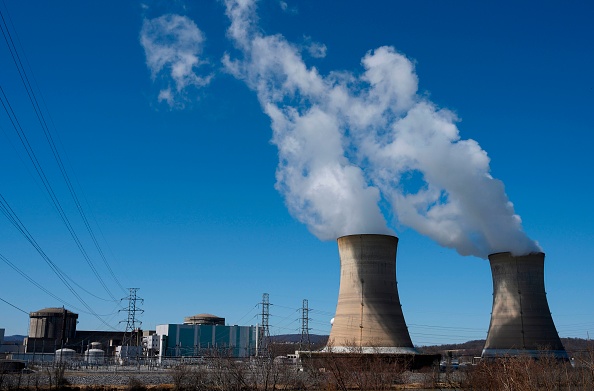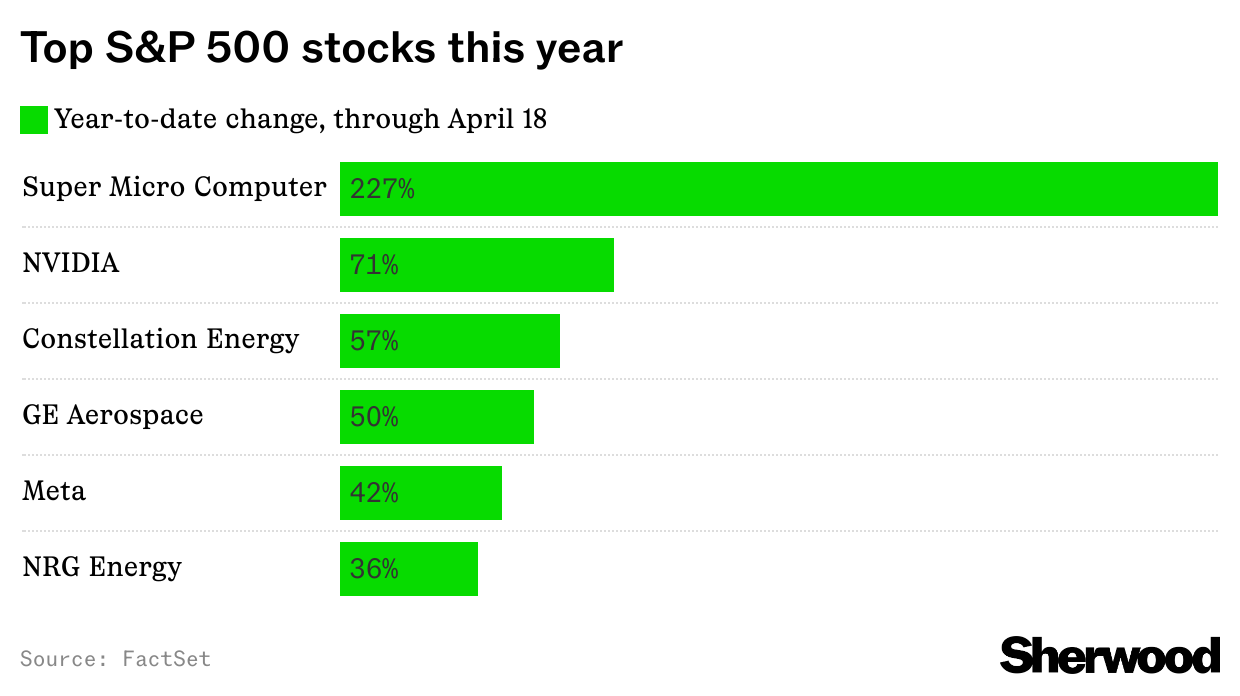Hey Snackers,
You've got 3 days left in Shark Week — schedule here (we suggest the Return to Shark Island).
Stocks suffered their second-straight brutal drop on fresh macro news — The US/China trade war hit a freaky new level because talks in Shanghai went the wrong way (details below).
Deliver
Square falls 7% — and it's selling Caviar to DoorDash for $410M
Switch hitters are rare... Square's winning a batting title with its consumer and small biz facing businesses, processing your latte purchase from the neighborhood spot. The digital payments icon announced revenues rose 44% to $1.2B (sounds pretty good). But Square spent so much on growth that it suffered a $7M loss. Here are its 3 areas of focus.
- Business biz: Square's "seller ecosystem" is for companies. Its software and card-swiping tech helps businesses collect payment for that buddha bowl. Once Square gets to know companies' payments, it can even lend to them.
- Consumer biz: Square's Cash App is the alt-Venmo that also trades Bitcoin. The peer-to-peer payment app makes up just under a quarter of company revenues, but its physical card can be used anywhere. Plus, it's the #1 free finance app 2 straight quarters.
- Delivery: Square acquired restaurant delivery app Caviar to get you your chicken curry and process the payment. But now it's making a change...
Who ordered the Caviar?... DoorDash. Square is selling Caviar to another food delivery app. Square CEO Jack Dorsey is busy building payments ecosystems (+side-hustling as Twitter's CEO) — no time to fight in food delivery wars. It's not a bad return though: Square bought Caviar in 2014 for $90M. Now it's selling to DoorDash for $410M of cash and shares.
This is a rare miss for Square... The stock had risen 40% so far in 2019, and had more than tripled in the past two years. Becoming the best money friend of businesses was already an accomplishment. Then its Cash App came out of nowhere, becoming the best friend of fantasy football league coordinators who need to track down league dues.
Wear
Canada Goose drops 5% on un-wokeness
Arctic-functional... Fifth Avenue-fashionable. According to Canada Goose its jackets are packed with humanely-sourced goose down and lined with fur from coyotes in "overpopulated" areas (where the carnivores attack pets). So dropping $1,000 on a faux-rugged parka makes you feel ok. Canada Goose's website said so. But shares fell after the New York Post noticed that website changed.
- Deleted: No more "traceability video" to see where that coat's feathers and fur came from.
- Replaced: "We ensure ethical sourcing" is now "we're committed to ethical sourcing."
This goes back to 2017... And it begins with the People for the Ethical Treatment of Animals:
- PETA got its hands on a video of a bunch of guys man-handling geese in an inhumane way. PETA alleges it was a Canada Goose supplier (Canada Goose denies this).
- The FTC began looking into Canada Goose for “potentially false and misleading advertising” given all the our-fur-is-humane material on their website.
- NY Post noticed Canada Goose made "prompt, corrective action" to its website by totally watering-down its ethical promises.
There's market value in 'wokeness'... Definition: Being acutely aware of social injustices and acting accordingly. We're seeing corporations take stands on social issues, from Nike's Kaepernick campaign to Patagonia's climate change initiatives. But Canada Goose's un-wokeness cost shareholders a 5% drop — investors think customers judge values as much as they do style.
Battles
The trade war just hit a fresh new level: iTariffs
100% of Made In China is tarriff'd... Trade negotiators returned from chats in Shanghai this week, reporting to President Trump that China had broken too many promises — it's not buying more US crops, and it hasn't stopped selling the addictive pain reliever fentanyl. So the president started tweeting.
- Before: $250B worth of stuff the US imports from China each year was tariffed by 25% (think of it as a 25% tax) — mostly business products like steel and machines.
- Starting September 1st: The remaining $300B of Chinese imports get tariffed by 10% — and your wallet will notice this time (more in the takeaway).
Tariffpalooza affects nearly everything... The S&P 500 (a helpfully broad measure of the whole stock market) dropped 2% after the announcement. Then oil prices plummeted 7% because this escalation could hit global trade. GE and Caterpillar both dipped 4% because they produce and sell there. Best Buy dropped 11% and The Gap dipped 8%.
You’re gonna notice it this time... For political reasons, the tariffs have so far targeted the kind of things that probably don't affect your life ("steel beams" part of your daily routine?). But to escalate the trade war further, Trump started taxing the toys (Barbie, Hot Wheels), clothing (check your label), and tech (likely what you're reading this on) that consumers (read: voters) buy.
FYI: Apple dropped 2% because AirPods, MacBooks, iPhones, and iAnything are China-made and will likely get more expensive because of this.
What else we’re Snackin’
- Fresh: Burger King will expand its plant-based Impossible Burger partnership to over 7K stores next week
- Haul: GM's profits rose 2% as it sold 1.9M vehicles worldwide last quarter
- Worthy: Pinterest jumps 13% after its 2nd ever earnings report — it's focusing on "wellness activities" and leaning into pin-worthy ecommerce
- Subsidize: Jeff Bezos sold $1.8B of his Amazon stock...to fund his space venture, Blue Origin
- M-word: Facebook falls as the FTC looks at its WhatsApp and Instagram acquisitions for intent to create a monopoly
- Fuego: Lyft just suspended its e-bike service in San Francisco because the batteries have been catching fire
Friday
- The big US jobs report for July
- Earnings from Ferrari, Chevron, and Exxon Mobil
Disclosure: An author of this Snacks owns shares of Amazon.
20190802-917184-2764504
.png)

